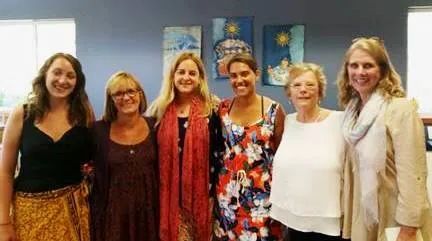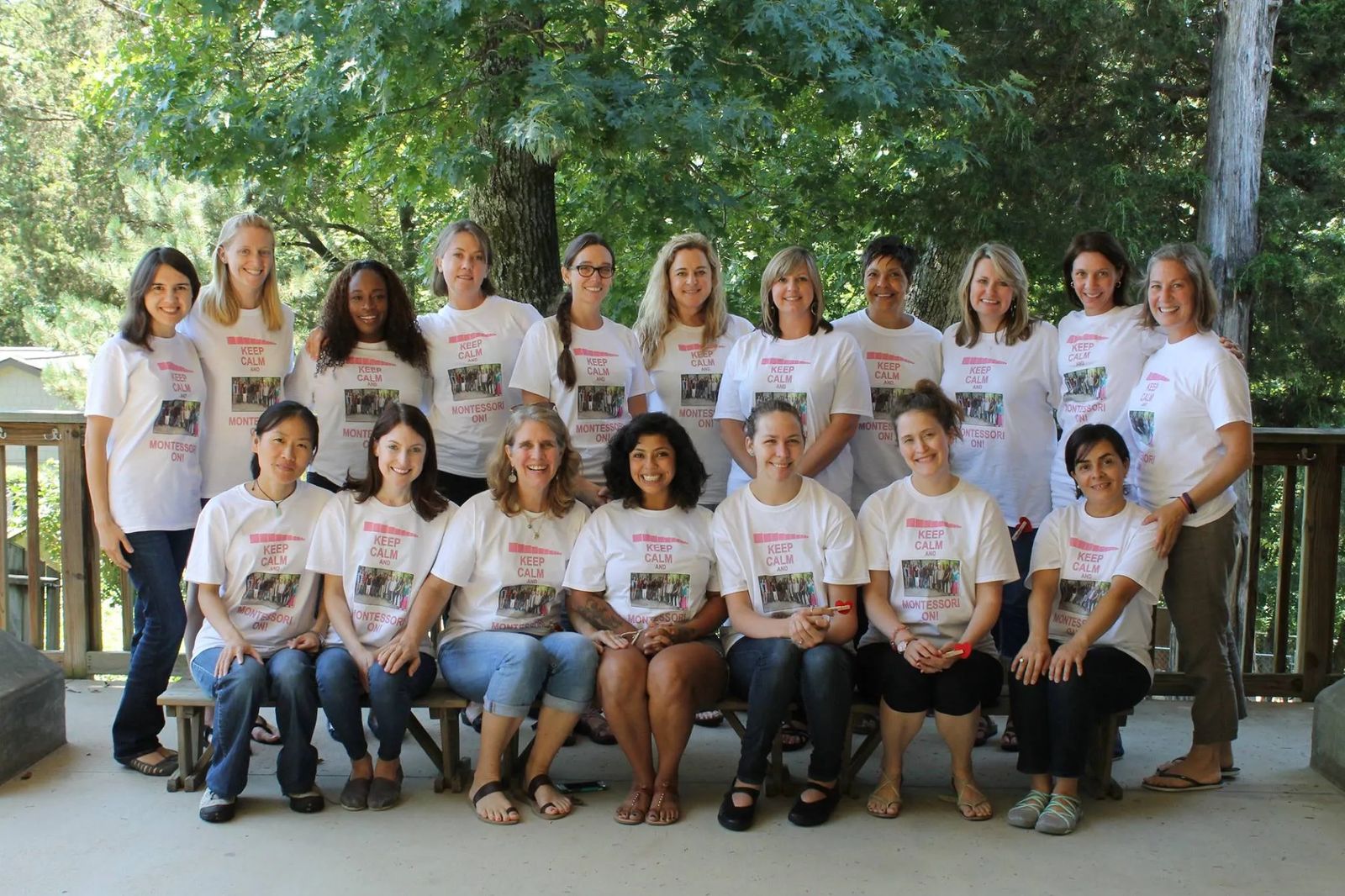Courage to Thrive
The first duty of an educator is to stir up life, but leave it free to develop. –Maria Montessori
Graduation Day with some of our graduates and faculty.

I wear many hats for the Age of Montessori, including those first phone call meetings with adult learner candidates during the enrollment period, teaching summer Residencies, and supervising the Internship year that follows.
From start to finish, this all can take up to two years, and over the course of that time, I have the privilege of supporting our adult learners through many ups and downs, both personally and professionally.
Throughout our journey together, I hold space for our teachers-in-the-making as they engage with the Internship assignments along with a range of complications such as a sick child in the hospital, the end of a marriage, the death of a fellow teacher, or challenging dynamics with a classroom supervisor.
Part coach, part cheerleader, I encourage them to keep their eyes on the goal, to carefully choose their battles, and to jealously guard their time and energy to protect the stamina needed in order to reach that finish line of earning their teaching credential. Our graduates go on to enter a profession in which they literally change the lives of children and families, contributing to the fabric of culture and thereby making significant contributions to society.
Preparation for Life
Dr. Montessori described her method as “preparation for life,” which is why many Montessori teacher education programs prefer the language “teacher preparation” in keeping with this message. In her groundbreaking book, The Absorbent Mind, Montessori explains that:
The real preparation for education is the study of one’s self. The training of the teacher who is to help life is far more than the learning of ideas. It includes the training of character. It is the preparation of spirit.

As I contemplate my current group of forty Intern teachers, I realize the challenges they carry within them—the heartbreaks, losses and insecurities—all of which impact their time with us. One way or another, their journey with the Age of Montessori helps them face these things as they move towards healing and resolution in their lives. As students delve into child development, they gain a deeper understanding of their own psychology which tends to act as an undeniable catalyst for inner growth.
Knowing these very personal trials and the fortitude and grace with which they are met can be quite humbling. During the long hours of the summer Residencies, the faculty and students get to know each other quite well in class discussions, over lunches, and social gatherings.
On that last day of the Residency, I look into the eyes of my students and give them a final hug knowing full well that an individualized obstacle course lies before each of them. Some of them will face heartbreak, illness, upheavals within their schools, and any other number of challenges as they exit the relative safety of our classroom walls and return to the rest of their lives. This training stirs up life, to use Montessori's words, and the internship year becomes a vehicle for life-changing personal development.
Each spring, our students approach the final stretch of the academic year, often a bit ragged or bruised by whatever cocktail of life challenges that have been served to them. At the same time, our faculty are privileged to witness the courage to thrive shining through. This dogged determination combined with the heartfelt passion to become a Montessori teacher, compels our students forward.
As Maya Angelou penned the words so stirringly, "Still, I rise!"
Preparation for Life
Allow me to share this story with you:
A few years before entering our teacher training program, one of our students slept through the start of a 5K race she had entered as a means to pull herself out of a tough bout of postpartum depression. The perceived sense of failure at having missed this race had clung to her like a wet blanket until finally, she decided that it was time to shake off that sense of defeat and re-write her story with a happy ending. The opportunity came to enter another 5K race and she started training. A week before the race, she suffered a miscarriage. She didn’t know if she could run, but forward she went.
The morning of the race came, and she said she was so nervous that she wanted to vomit. If that wasn’t discouraging enough, she had left her safety pins at home for pinning on her race bib, she couldn’t find her headphones, and wanted to give up before she started. But, in her own words, she “straightened up and ran anyways.” And run she did. All the way to the finish line.
The sweetness of victory

The point of sharing Anna’s story here isn’t the sweetness of her personal victory, or the great time she made in the race (which she did). The point is that she had every reason to throw the towel in, but she ran anyway.
So when the inevitable trials and tribulations begin to mount up in the lives of our adult learners, I know that part of my job is to remind them of why they wanted to become an educator in the first place. The calling to become a teacher is not for the faint of heart. The rewards from having contributed to the lives of our youngest members of society are enormous. So often those hard-won goals end up becoming the most precious. And as a Montessori teacher friend of mine reminded me more than once:
A friend is someone who knows the song in your heart and can sing it back to you when you have forgotten the words.






















